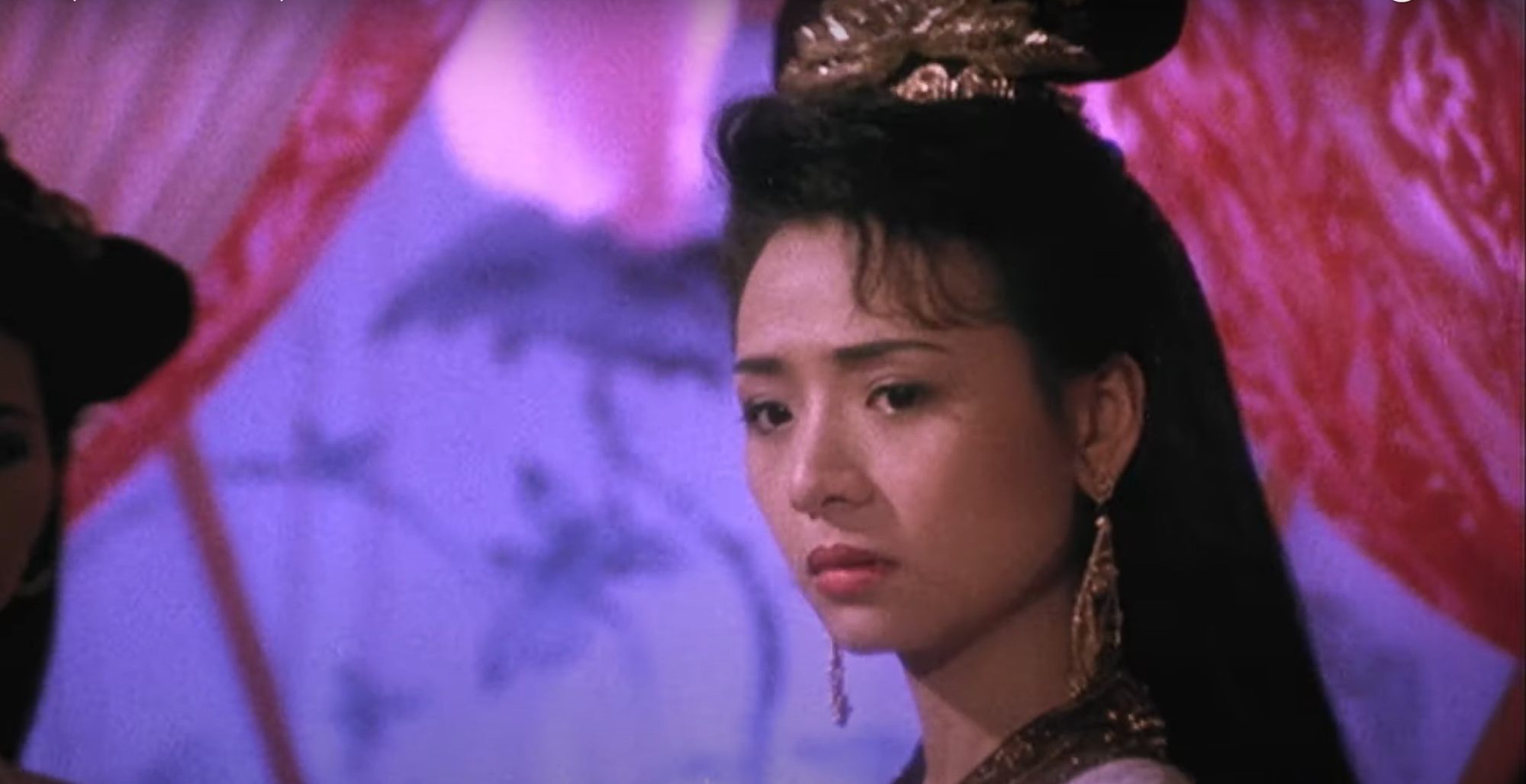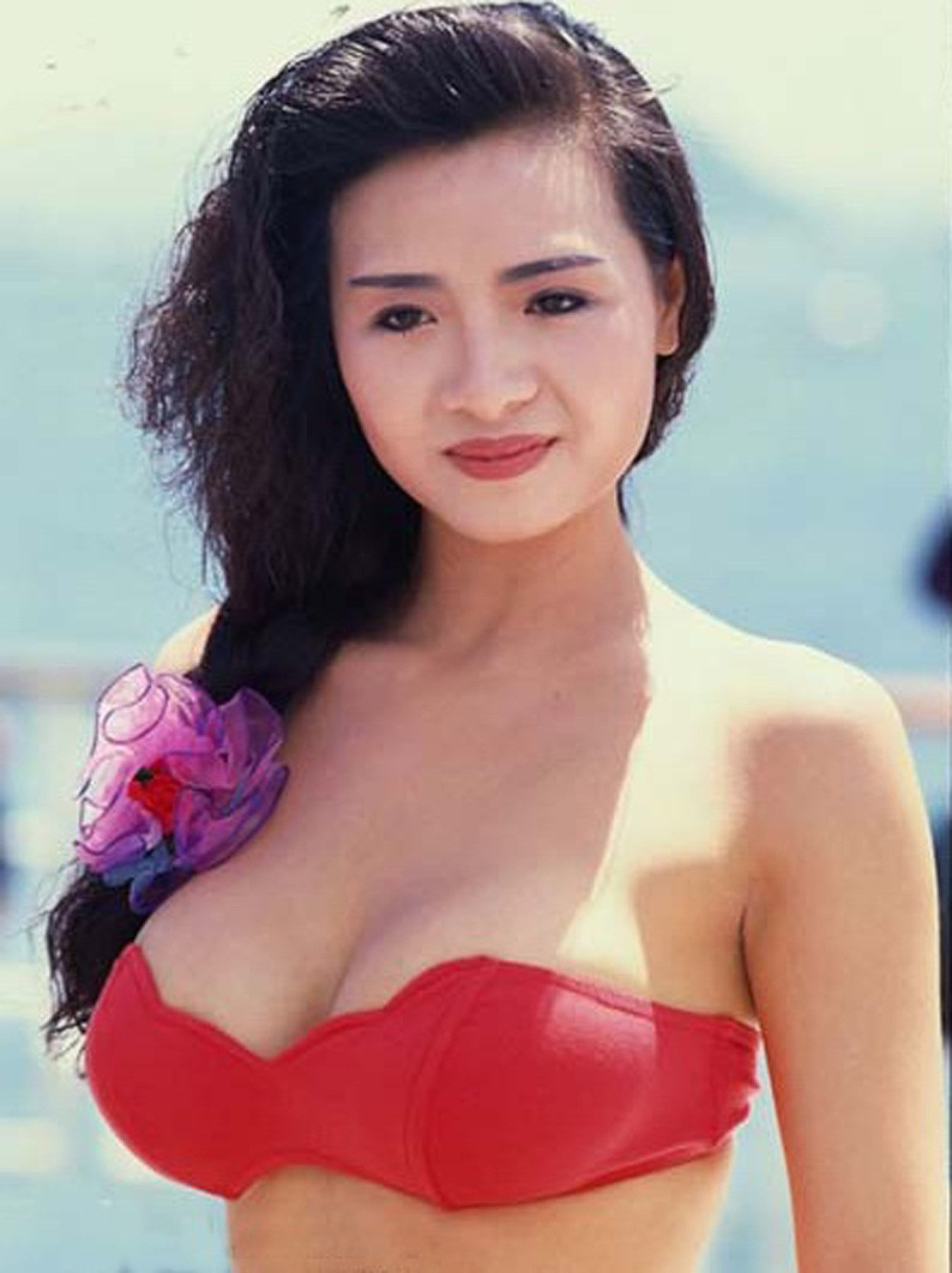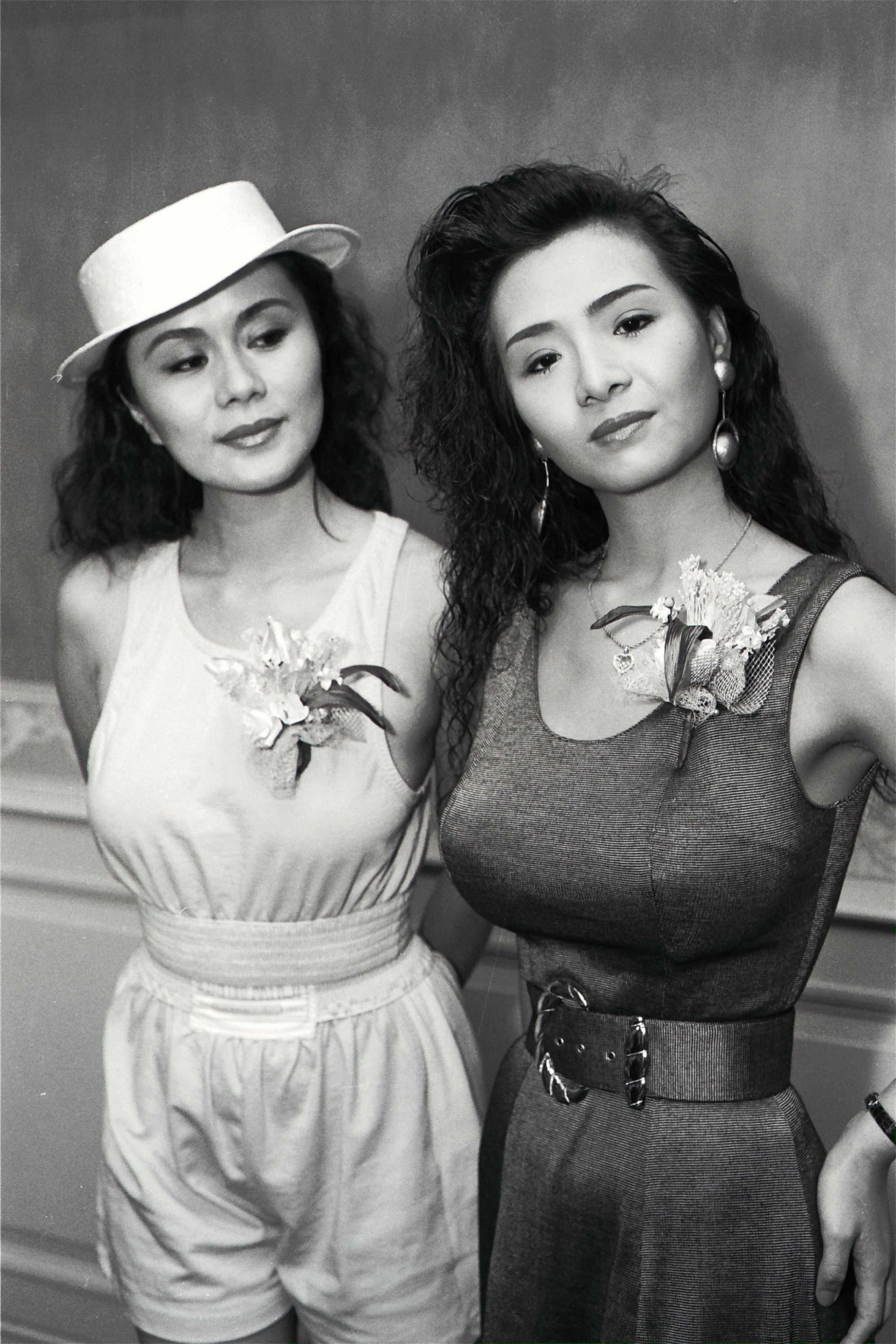
How Amy Yip, Hong Kong sex symbol, made her mark in erotic films without ever baring all – and insured her breasts for US$250,000
- Soft-core films like Erotic Ghost Story, Robotrix, and the cult classic Sex and Zen saw Amy Yip reign supreme as Hong Kong’s resident sex bomb in the 1990s
- Yip was hounded by paparazzi throughout her career – and she loved the attention, saying: ‘Since I was 15, I have wanted people to stare at me in the streets’
Hong Kong cinema had never launched a female sex symbol in the generally accepted sense of the term until Amy Yip Chi-mei arrived on the scene in the late 1980s.
When the Category III – adults only – rating was introduced in 1988, a slew of films featuring various combinations of soft-core sex, gore and violence appeared in cinemas and proved popular with viewers drawn by their novelty value.
Yip, who was remarkably well endowed, quickly jumped from a two-year contract at television company ATV to take advantage of the Category III film scene.
Soft-core films like Erotic Ghost Story, Robotrix, and the cult classic Sex and Zen, which generally featured mild sex scenes mixed with violence and action, saw her reign supreme as Hong Kong’s resident sex bomb until she was eclipsed by more daring performers such as Veronica Yip Yuk-hing (no relation) a few years later.

Her unique appeal was easy to pin down. “Hong Kong actress Amy Yip owes her fame to her figure. Her 36-inch [92cm] bust has certainly carried her publicity. She can also point to the trappings of material success earned during her two-year film career – a HK$1.7 million flat and a 190E Mercedes-Benz,” wrote the Post’s Maria Wan in 1990.
Yip, the daughter of a barber, was hounded by paparazzi throughout her career, many of whom aimed to discover if her buxom features were for real – she always claimed they were.
She was featured in the Chinese-language press on an almost daily basis, and her figure adorned numerous crudely designed magazine covers.
By her own account, she lapped up the attention. “I have always wanted to be different, to stand out in the crowd,” she told the Post. “Since I was 15, I have wanted people to stare at me in the streets. If I go out and people stare at me, it makes my day.
“If [they] don’t, I will go home and look at myself in the mirror, or perhaps change in to some sexier clothes,” she said.
“I don’t mind people staring because I treat them as admirers. If they say something rude, I will just ignore them. It doesn’t spoil my day at all,” she added.
Yip was well aware of the secrets to her success, and even went as far as to insure her breasts.
“Yip will become the first Hong Kong Chinese woman to take out an insurance policy to guarantee the worth of her breathtaking assets, which she regards as more important than her life,” wrote the Post.

“Her ‘human body insurance package’, secured through a US insurance company, is worth US$250,000. Details are yet to be finalised,” the Post noted.
In spite of all the fuss, those “breathtaking assets” were never fully displayed.
Actresses often went topless in early Category III films, but Yip achieved her status without ever really showing anything – her sex scenes were always filmed from the back, or from the side, and she sometimes wore an “invisible” body stocking or tapes. Viewers could see her curves, but nothing else.
This became known as the “Yip tease”, and audiences were drawn to each new film to see if she would actually reveal more.

She never did. “I will never bare all. I want to keep people in suspense. When they have seen me in the nude they won’t be curious any more. It will be a bad career move if I do that,” she told the Post.
“And I will have difficulties finding a decent husband. Men are not that open-minded when it comes to choosing a wife.”
At the height of her fame Yip was ubiquitous, although she was rarely given top billing and was often a leading player in an ensemble cast. Her most famous film was 1991’s Sex and Zen, a period soft-porn production which quickly achieved cult status for its depictions of unusual sex acts and its bizarre storyline.
Made by major studio Golden Harvest, its glossy production values set Sex and Zen apart from the usual low-budget Category III product. It was more overtly pornographic than most of Yip’s work, although a much talked-about underwater sex scene actually featured a body double.
Robotrix is another of her more famous films. The tawdry science-fiction story is more of a straightforward exploitation film than a sex film, featuring mad scientists, sex-mad female robots, and some extremely bad comedic and martial arts scenes.
Yip plays an almost invincible police robot who decides she wants to experience more of the carnal side of humanity while tracking a killer.
This results in her posing as a prostitute to lure the killer into a police trap. Since she is a robot, she is a tireless lover, so men line up around the block to sleep with her.
More by accident than design, Robotrix has much in common with the low-budget exploitation films of sex-obsessed American filmmaker Russ Meyer, who made cult films like Faster Pussycat! Kill! Kill!.

“As the police force’s most powerful female robot, Amy Yip possesses more than her fair share of lethal weapons. One of the funniest scenes has her going undercover, both literally and figuratively,” said the Post review.
Yip did want to break out into more serious roles, but directors realised that her physique was a selling point for their films, and never really took the focus off of her figure.
She did snag a supporting role in the epic 1991 gangster drama To Be Number One, and she also received a rare top billing in 1991’s Queen of Underworld, about a woman who rises to become the top madame in Hong Kong.
Although this is reportedly Yip’s own favourite film, it is still laced with unpleasant violence and unsavoury sex scenes.
Yip was also often happy to spoof herself.
Yip reportedly had problems with triad film bosses threatening her with violence, and pressuring her to make films at a cut-price rate.
There was also the strange case of her erstwhile lover, a Hong Kong-based Bank of America executive who she had met in 1988.
The man was obsessed with Yip, and was arrested and imprisoned in 1991 for trying to illegally transfer US$2 million from the bank into her account – to keep up with her financial demands, he said. He reportedly even moved his mother into low-income housing so he had more money to support Yip.
Yip’s career finally hit the rocks when a new breed of Category III actresses started a trend for full nudity in late 1991. Yip made a one-off Mando-pop album in Taiwan in 1992, and then disappeared from the entertainment world after a few more inconsequential films.
“Has the bubble burst for sex goddess Amy Yip?” the Post asked in 1992. “Once on the cover of dozens of magazines and signboards in Hong Kong, the dethroned queen of Category III films is now singing to revive her diminishing career.”

“Ousted from the soft porn industry by younger starlets more willing to disrobe for the camera … Yip has been blown away and left to settle on the side of the celluloid road,” the Post said, somewhat unkindly.
In this regular feature series on the best of Hong Kong cinema, we examine the legacy of classic films, re-evaluate the careers of its greatest stars, and revisit some of the lesser-known aspects of the beloved industry.
